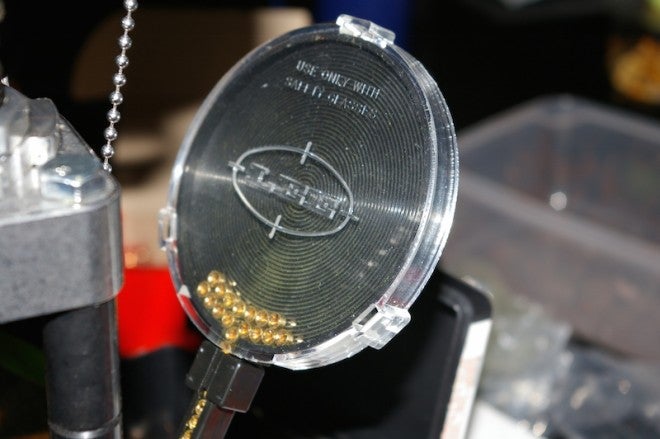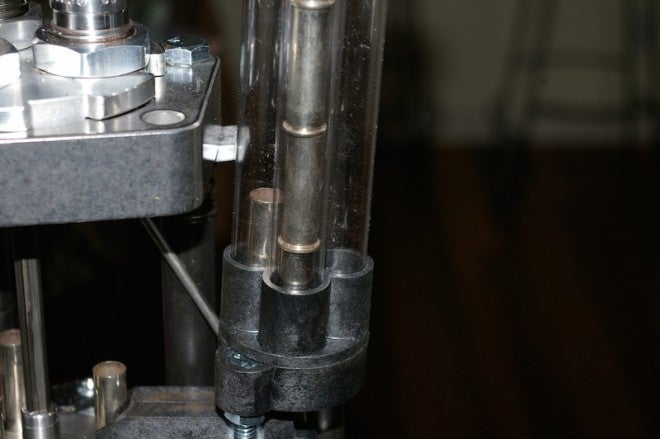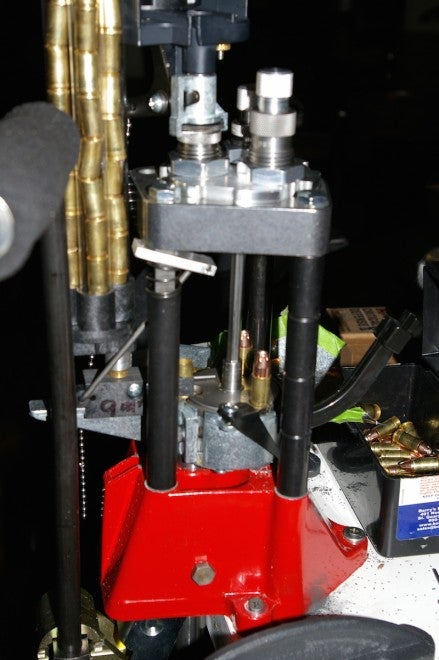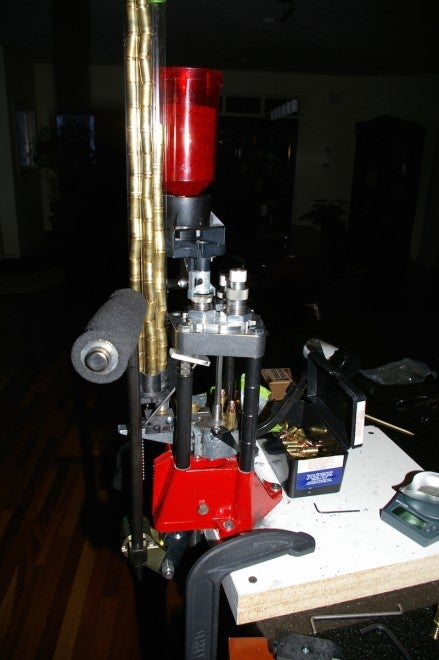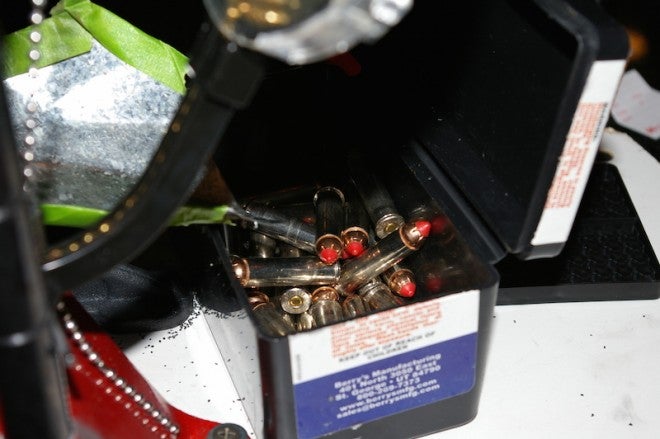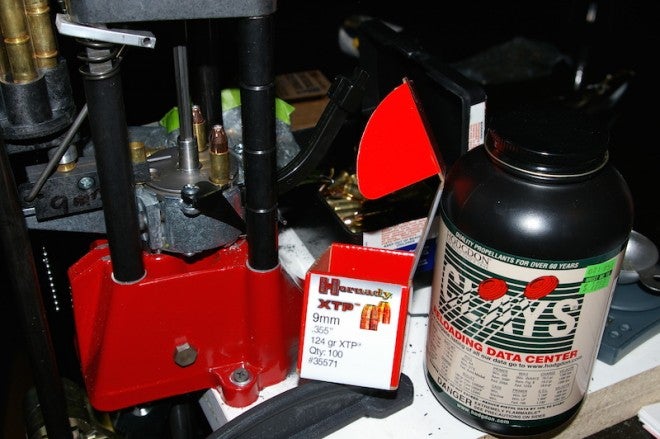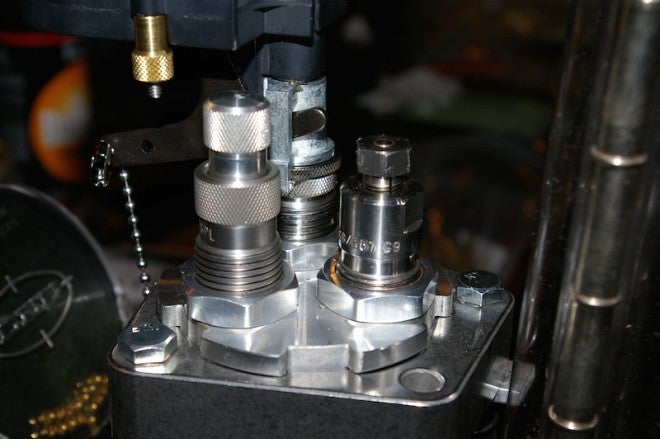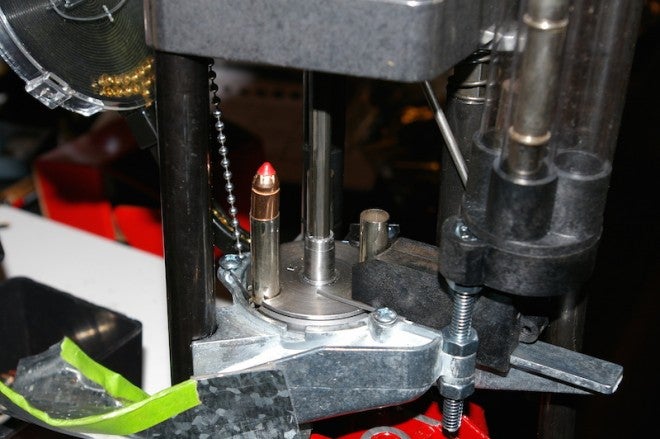Review: Lee Precision Pro 1000 Progressive Reloader
Major Pandemic 09.19.16

Whenever ammo gets scarce, it’s handy to be able to load your own. And if you shoot a lot, reloading can be cheaper in the long run.
When I started reloading nearly a decade ago, I started with a simple Lee Hand Loader, which is a portable single-stage press that doesn’t even need to be mounted to a workbench or table. It did the job, but was painfully slow to use.
I still use that press on the range or when resizing brass while watching a movie at home, but when you want volume, you have to look to a progressive press. Progressive reloading presses deliver one finished cartridge per handle cycle, which can add up to 250 rounds per hour, but they’re more complex contraptions, which usually pushes prices up.
Of the progressive setups on the market, the Lee Precision Pro 1000 is without question one of the best buys in the industry. With a street price of only $183.00, it can quickly pay for itself.
The Pro 1000 does have its limitations. For instance, although the same press can be used for multiple calibers, I think it is a total pain in the butt to swap from one caliber to another. If you buy the Lee Pro 1000 setup from the factory in your caliber of choice and only make minor modifications as needed for tuning, I think you will be happy.
To be fair, the Lee website claims you can “change calibers in just three minutes.”
The Lee Pro 1000 is available in a dozen pistol calibers and also 223 Remington. In my opinion, this press is so inexpensive that it makes sense to have one Pro 1000 in each of your needed calibers. This would cost you around $125 more than you would spend for a set of dies alone.
Even at full price, it can pay for itself in about 800 rounds (which goes pretty fast).
After setup and tuning, you can have this press up and running in about an hour. Operation is fairly simple and mostly automatic, but with just three stages, it is a little limiting as well. Depriming and resizing occurs on station one. Priming, case flaring, and powder charge occurs on station two, and bullet seating and crimping happen on station three.
Cases are automatically fed into the machine and the only requirements of the operator are to make sure primers are feeding (sometimes they don’t), ensure the cartridge cases keep feeding, and place a bullet on the case in station three.
When the Lee Pro 1000 is tuned well and your brass is well-prepped (and you remember to flick the primer tray every six or so rounds) everything runs great and the press is a joy to operate. Production volumes can be stunning. Lee even has an optional automatic bullet feeder, which means total hands-off reloading other than pulling and pushing the lever.
I have found that the Pro 1000 does like to have primer pockets chamfered for positive primer seating (you only have to do this one time per brass case). As with any progressive press, there is a lot to keep an eye on during reloading, but the simple three-stage press makes that process a little easier-or at least 25% fewer things to look after versus a four-stage press.
I purchased a 9mm Pro 1000 and was not disappointed, except that I have to run each round through my single stage press after it’s gone through the Lee 1000 to get the type of crimp that I prefer.
The 9mm factory setup fed, functioned, and reloaded without any significant issues. I then converted the press to 38 special. It wasn’t something that was particularly enjoyable, but you can do it and then expect about an hour of tuning to get the press really humming along.
Once it was set up and tuned, I really liked the Pro 1000 for either 9mm or 38 Special–and then I converted it over to 223.
The Pro 1000 works well for handgun ammo, but I had a lot of problems loading 223. Problems included brass feeding and priming, and I felt like I had a higher probability of breaking something because it takes more force to do 223 as compared to a handgun cartridge.
My 223 brass was not prepped properly with chamfered primer pockets, which led to bunch of primers going in sideways. I had this issue with any brass that has tight primer pockets, but for whatever reason my 223 brass was giving the Pro 1000 fits.
Botched primer seating meant that powder charges leaked through the cases since the sideways primer didn’t fully seal the flash hole. Powder was going everywhere and jamming up the internals. A thorough cleaning and teardown was required in some cases to get everything working again.
That noted, I have friends who load 223 (with properly prepped brass) on a factory-set-up Pro 1000 who have no significant issues, so it may just be my tuning. What I found was that the shorter the case, the more smoothly the feeding went at the first critical stage. The tall 223 cases in the Pro 1000 just seemed to cause problems.
During 8+ years of ammo shortage, the Pro 1000 was used heavily, pounding out thousands and thousands and thousands of 38 Special and 9mm cartridges, until I finally broke a piece on the changing handle.
I was amazed at how awesome Lee’s customer service was, and I had a replacement part in my hands in about a week. You may push the Lee products to a breaking point, but Lee does stand behind each of their products.
Final Thoughts
Despite my problems, the Lee Pro 1000 is the best budget-buy progressive reloading press on the market, and I honestly have no idea how they can offer this for the price they do. My advice is to buy one of these in each caliber you need, set it, and leave it.
I have a really nice Dillon 550B setup, but the Pro 1000 can produce more rounds per hour and I still use it for loading 38 Special. Is the Lee Pro 1000 the same quality as a Hornady, RCBS, or Dillon press? No, but it is an awesome value for the entry level reloader who wants to see whether this whole progressive reloading thing is for him (or her).
To put the price and value of the Lee Pro 1000 into perspective, consider that the next-closest-priced progressive press, set up to reload for a single caliber costs more than $600 (a little over three times the price of the Pro 1000).
For many, this becomes an easy decision, and from my perspective it’s a great place for a reloader to start experimenting with progressive loading (after they have at least a little experience with a single stage press).
Manufacturer Specs
- Lee Pro 1000 progressive 3-hole reloading kit for your selected caliber. Includes press, dies (full length size, powder through expanding, and bullet seating), 3-hole turret, #19 shell plate, Pro Auto-Disk powder measure, small case feeder and priming system.
- This press only accepts the 3 hole turret.
- WARNING: Only CCI or Remington brand primers are safe use with this press.
- Weight 13.00 lbs
- MSRP: $280.00 (street $183.00)
- Offered for these cartridges:32 S&W Long or 32 H&R Magnum
9mm Luger
380 Auto
38 Special (will load 357 Mag.)
357 Magnum
40 S&W
10mm Auto
41 Magnum
44 Special (will load 44 Mag)
44 Magnum
45 ACP
45 Colt
223 Remington
